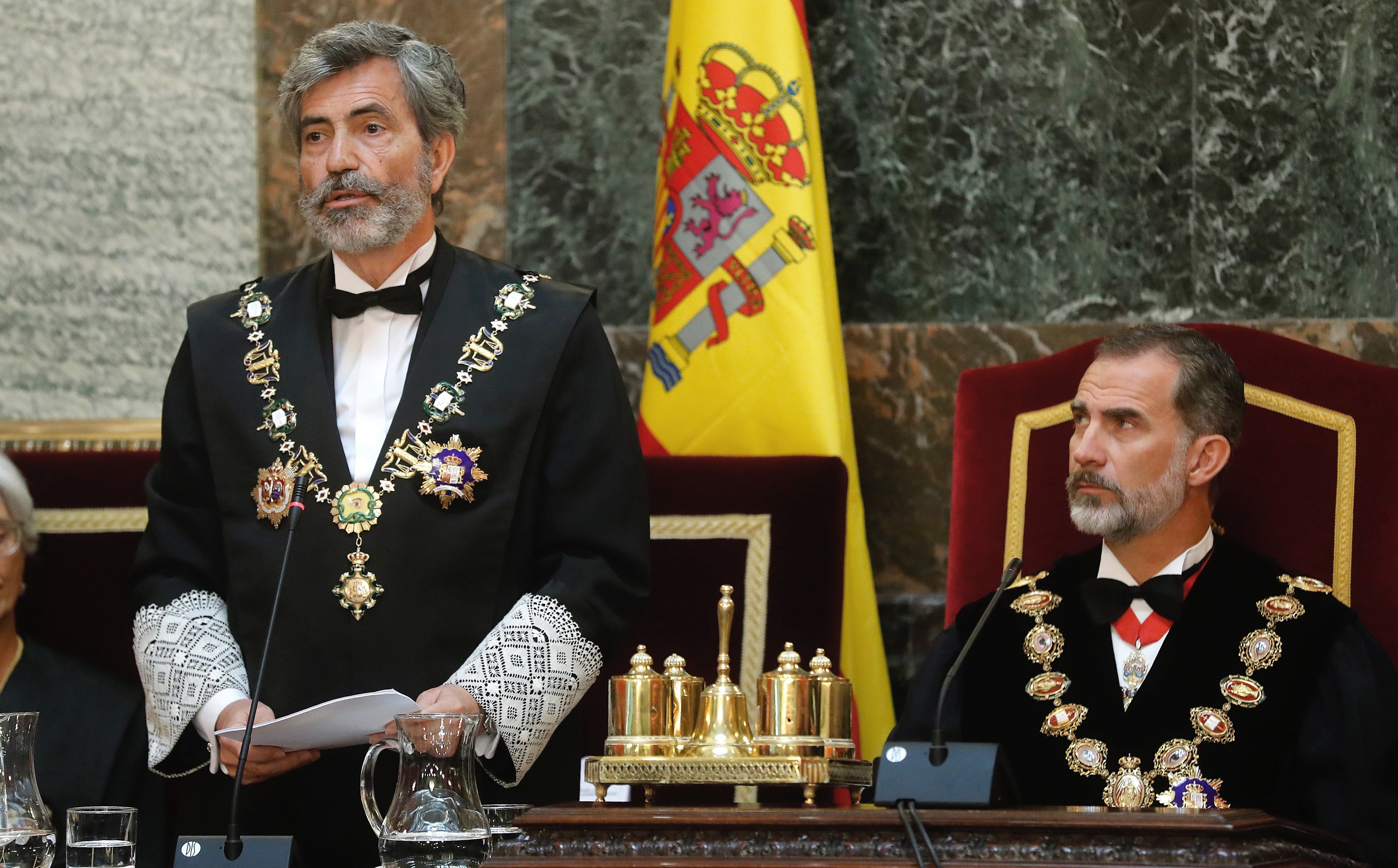Special chamber sala del 61 of Spain's Supreme Court, headed by Carlos Lesmes, has accused the Catalan political prisoners of "only looking to tarnish the honour of Spanish justice" with their application for the recusal of all the judges set to hear their case.
The chamber, which considers most lawsuits against the court's judges, has unanimously refused to move aside the five judges of the high court who will judge the pro-independence leaders. The decision, following an application from some of the prisoners, was announced earlier this month, but the written judgement was only published today.
For the court, all the arguments wielded by the prisoners are "generic" and "lack justification" for the recusal of the judges because "they only seek to tarnish the honour of Spanish justice". "The mere verification that none of the arguments from the applicants refers specifically to the judges in question is sufficient reason to reject them", the chamber says. It suggests that the attempt is to "transmit a broad image of the high court, insinuating that it's not the appropriate forum".
Likewise, it says that the officials will not be tried for their political aims, rather for the "serious crimes" they committed to carry them out. "That someone should be pursuing a political objective, like the secession of Catalonia, doesn't rule out that they could commit serious crimes to achieve this aim. This case is only concerned with this, not with political objectives," they write.
As for the argument that the Supreme Court lacks jurisdiction over the case, it says that "breaking ties with the state it belongs to can never be characterised as something limited to Catalonia". For the chamber, "it's not idle to add that the lawsuit wasn't presented to the High Court of Justice of Catalonia, but to the Supreme Court".
The judges add that it's Catalonia's Statute of Autonomy which regulates privilege defining which courts can hear certain matters involving certain individuals and that it was the authors of that legislation who "pondered the advantages and disadvantages of establishing a special rule of jurisdiction for the criminal proceedings undertaken against certain public officials".
Moreover, the judgement continues, the rule on jurisdiction "has always been interpreted" as allowing "these public officials to be tried by a jurisdictional body endowed with a particular experience and strength. It adds that Catalan lawmakers "could have done away with this additional guarantee for the parliamentarians of the autonomous community" because "no constitutional rule requires this privilege".
The judges also believe that for "the simple fact of having taken part in accepting the lawsuit for consideration does not mean, by itself, contamination", as argued by defence counsel for the prisoners. "It's not recorded that the judges did anything other than receive the complaint, confirm that it met the required conditions and pass the matter to the investigating judge whose turn it was," the judges write.
Another of the arguments for the judges' recusal was that three of them (Manuel Marchena, Andrés Martínez Arrieta and Juan Ramón Berdugo) had heard the trial of former Catalan presidency minister Francesc Homs for serious disobedience at the Constitutional Court following the unofficial 2014 referendum.
The argument of "the similarity of those events with those here on trial" is "very weak" in the judgement of the court. They believe the events to be judged now are "different" from those that led to Homs' conviction although "certainly, the pursuit of the secession of Catalonia is the backdrop of the two matters".

